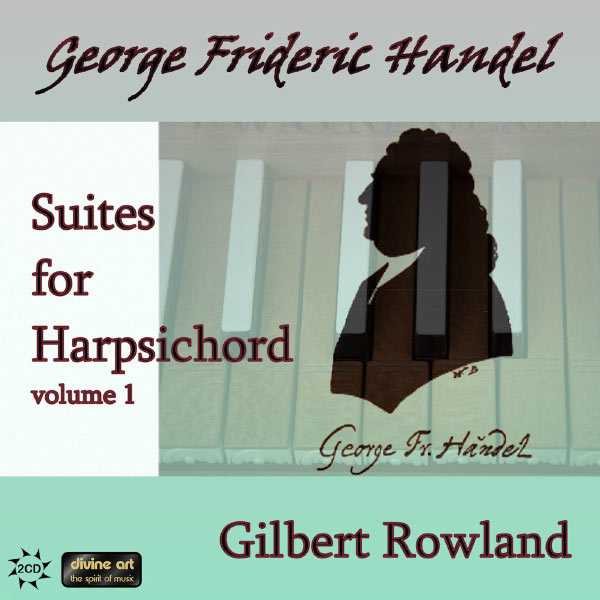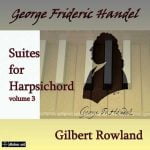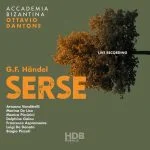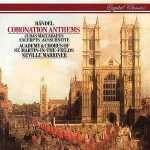
Composer: George Frideric Handel
Performer: Gilbert Rowland
Number of Discs: 2
Format: FLAC (tracks)
Label: Divine Art
Catalogue: DDA21219
Release: 2011
Size: 987 MB
Recovery: +3%
Scan: yes
CD 01
Keyboard Suite No. 3 (Set I) in D Minor, HWV 428
01. I. Prelude
02. II. Allegro
03. III. Allemande
04. IV. Courante
05. V. Air and 5 variations
06. VI. Presto
Keyboard Suite in A Major, HWV 454
07. I. Allemande
08. II. Courante
09. III. Sarabande
10. IV. Gigue
Keyboard Suite No. 5 (Set II) in E Minor, HWV 438
11. I. Allmand
12. II. Saraband
13. III. Jigg
Keyboard Suite in C Major, HWV 443
14. I. Prelude
15. II. Allemande
16. III. Courante
17. IV. Sarabande
18. V. Gigue
19. VI. Chaconne with 49 Variations
CD 02
Keyboard Suite No. 6 (Set II) in G Minor, HWV 439
01. I. Allemande
02. II. Courante
03. III. Sarabande
04. IV. Gigue
Keyboard Suite No. 8 (Set II) in G Major, HWV 441
05. I. Allemande
06. II. Allegro
07. III. Corante
08. IV. Aria. Presto
09. V. Menuetto
10. VI. Gavotta
11. VII. Gigue
Keyboard Suite No. 4 (Set I) in E Minor, HWV 429
12. I. Allegro
13. II. Allemande
14. III. Courante
15. IV. Sarabande
16. V. Gigue
Keyboard Suite No. 5 (Set I) in E Major, HWV 430
17. I. Prelude
18. II. Allemande
19. III. Courante
20. IV. Air, “Harmonious Blacksmith”
Handel’s solo keyboard music has for too long been overshadowed by his operas, oratorios, and orchestral music. This comparative neglect seems unjust in view of the considerably large quantity of keyboard music which exists amongst his massive output.
Handel was one of the first composers to free the keyboard suite from the formal constraints of Allemande, Courante, Sarabande, Gigue frequently used by German composers of the seventeenth and early eighteenth century, such as Froberger.
Gilbert Rowland first studied the harpsichord with Millicent Silver. Whilst still a student at the Royal College of Music, he made his debut at Fenton House 1970 and first appeared at the Wigmore Hall in 1973.
His mentors have included Kenneth Gilbert and Fernando Valenti. Recitals at the Wigmore Hall and Purcell Room, appearances at major festivals in this country and abroad, together with broadcasts for Capital Radio and Radio 3 have helped to establish his reputation as one of Britain’s leading harpsichordists.
His numerous records of works by Scarlatti, Soler, Rameau and Fischer have received considerable acclaim from the national press. The recording of the 13-CD set of Soler sonatas with Naxos was completed in 2006. He also recorded a CD of Sonatas by Albero for London Independent Records two years ago, which was released in 2009. This is his first recording for Divine Art.
British harpsichordist Gilbert Rowland, who has recorded well-received versions of works by Soler and Scarlatti, here turns his attention to Handel’s suites for harpsichord. These works have been historically neglected, apparently for the mere reason that they are not like Bach’s partitas. Published mostly in 1720 and 1733 but dating in some cases from the earliest years of Handel’s career, they are brilliant works that effectively fuse the decoration-encrusted French style with joyous Italianate lightness. They can be approached in several different ways. Rowland steers away from tempo variations, offering crisp readings that tend to drive directly forward through a phrase and then pause slightly at its end. He’s a bit sober but doesn’t try to make the music sound like Bach; sample the Sarabande from the Suite in G minor, HWV 439 (CD 2, track 3), to hear the strong forward momentum in his slow movements. Rowland’s technique is clean enough to be exciting, and he applies ornaments intelligently; there’s quite a bit of ornamentation, but never a sense that it’s covering everything. The unidentified harpsichord Rowland uses is a major attraction with its bright, clear top; less attractive is the church sound, which is not as ponderous as some church recordings but still gives an unnatural hardness to the music. There are a few other contemporary recordings of these suites, beginning with a complete set by Scott Ross some years ago; for a reading that places them much closer to French tradition there are some versions by Sophie Yates. This is a good, straightforward collection for Handel fans, however, and this first volume is the beginning of what would appear to be a planned three-volume set on Britain’s Divine Art label.



